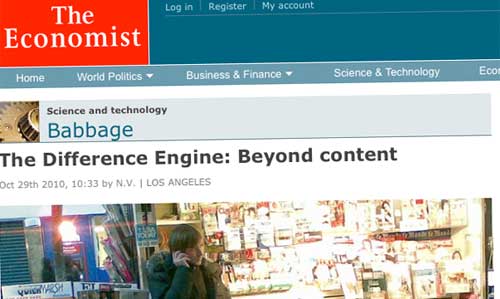
I use Flickr quite a lot – but almost exclusively for family stuff. The main attraction was the ability to send automated email notifications to family members who spend more reasonable amounts of time than myself in front of computer monitors. And since Flickr connectivity is built into any self-respecting mobile device nowadays (including some cameras), there’s no real reason to try and put something together myself in WordPress – although I do occasionally muse on how I might do it. (I’ve already come pretty close to it on a recent project for the Dept of Health.)
Anyway – one of the very few non-personal photos on my account is this one: a hastily-snapped shot of a news-stand outside Russell Square tube station, captured on nothing more advanced than a Nokia E65 phone. The Evening Standard’s report of a declaration of war seemed laughably over-the-top; and I was delighted to have captured the news-seller on his mobile phone, thus completing the trinity of media past, present and (not too distant) future.
Anyway (again) – I discovered at the weekend that it had been lifted by a journalist at the Economist to illustrate an insightful piece on old media’s woes. No qualms there: I’d put a CC Attribution license on it, so I was more than happy for them to use it. And on some level, the story behind the picture makes it even more appropriate.
